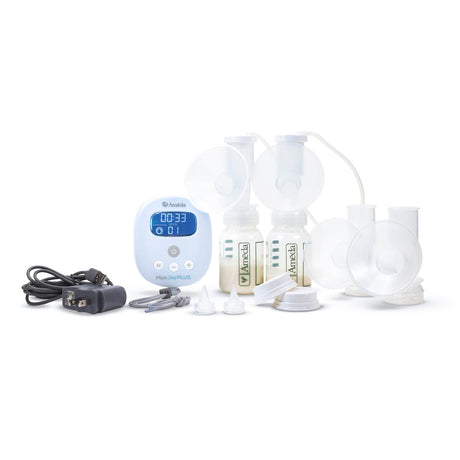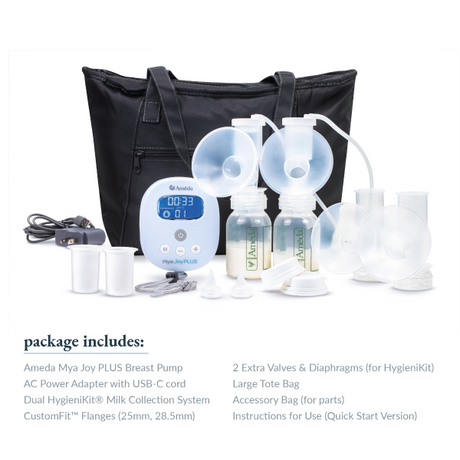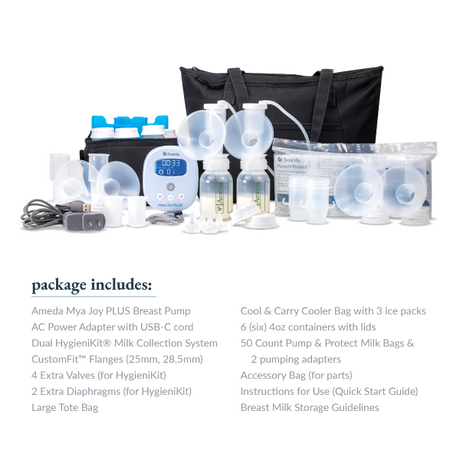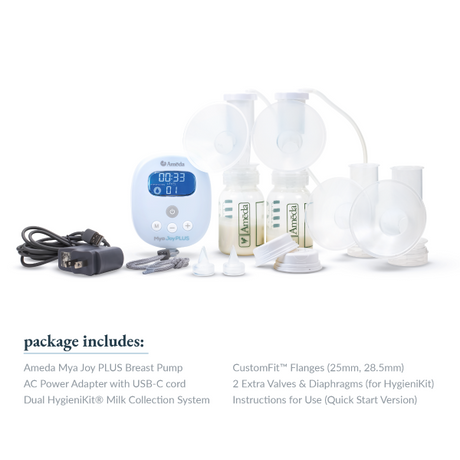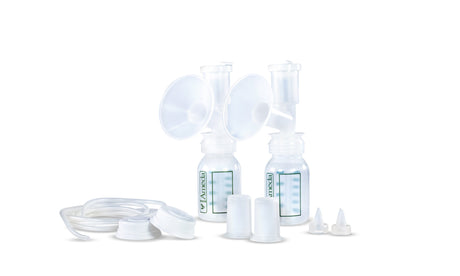Published:
Although the American Academy of Pediatrics recommends that all new moms in the U.S. should breastfeed their babies exclusively for 6 months, cultural differences have prevented some groups of moms from reaching this goal.
Black Breastfeeding Week, which runs from August 25th through 31st this year, calls attention to the importance of African American moms breastfeeding. Why is this so important? Recent research from the U.S. Centers of Disease Control and Prevention – have shown that African American moms are much less likely to breastfeed their babies than women of other cultures or races.
The CDC study, which included data on more than 88,000 American women, found that 81.5% of Caucasian new moms and 81.9% of Hispanic new moms initially made the choice to breastfeed their babies, yet only 64.3% of African American new moms did the same. Many of the women in the study didn’t nurse their babies exclusively for 6 months: Only 22.5% of Caucasian women, 18.2% of Hispanic women and 14% of African American women met that milestone. In both cases, the African American moms comprised the groups with the lowest percentages.

Several agencies and organizations, including the U.S. Department of Health and Human Services’ Office on Women’s Health, the Black Mothers’ Breastfeeding Association and the National Association of Professional and Peer Lactation Supporters of Color are working to increase the numbers of African American women nationwide who breastfeed their babies.
A complicated relationship
There are many reasons why more African American women don’t breastfeed their babies, according to experts.
Geography is often a factor. Some research has shown that African American women who give birth in hospitals which share zip codes with communities that have higher proportions of African American residents are less likely to be given information about breastfeeding by doctors, nurses or other hospital employees once their babies are born. These hospitals are less likely to encourage breastfeeding to all new moms, and they’re more likely to send new moms home with baby formula, rather than breastfeeding resources.
Additionally, many African American women live in neighborhoods that have been dubbed “first-food deserts” because they lack the resources that can help new moms provide breast milk – a baby’s “first food” – if they’re struggling. Local doctors in first-food deserts tend not to recommend lactation consultants to women who live in those areas. And if women who live in first-food deserts decide to seek lactation consultants on their own, it’s likely that there aren’t nearby, which may make it difficult or impossible for them to get help.
Family members’ influence can also impact whether or not African American women will breastfeed. Some research has shown that when women don’t have breastfeeding role models – if friends or relatives haven’t breastfed their own babies – or when partners or family members aren’t supportive of breastfeeding, women are less likely to nurse their babies, even if they have every intention of breastfeeding. In many African American families, breastfeeding wasn’t the norm in generations past, so new moms can’t seek advice from their own mothers when they run into problems.
Breastfeeding also has negative connotations in the African American community because of its history during the years when slavery was legal in the U.S.: Countless enslaved African American women were forced to be wet nurses, providing their precious breast milk to nourish their owners’ children, often to the detriment of their own children’s health.
The founders of Black Breastfeeding Week hope that their annual event, now in its 6th year, will help to shrink the gap in breastfeeding rates between Caucasians/Hispanics and African Americans. This year’s slogan is “Love On Top,” to let women know that breastfeeding is a way to nurture babies with love while providing them with a food source that is ideal for their development and growth.
Other groups are below average
African American women aren’t the only group in the U.S. with less-than-ideal breastfeeding rates.
Although Hispanic women, on average, are more likely to breastfeed their babies than Caucasian women and African American women, certain groups of Hispanic women are less likely to nurse their babies.
Some research has shown that the more assimilated into American culture that Mexican American women are, the less likely they are to breastfeed their babies. Other research found that Mexican American women are more likely to feel embarrassed about breastfeeding their babies in the U.S. and opt for baby formula, even though they believe that breastfeeding is a strong part of their Hispanic cultural heritage and they know that it has important health benefits for mothers and babies.

Data documenting the breastfeeding habits of Asian American women show that overall, women in this group tend to breastfeed their babies at roughly the same rates as Caucasian and Hispanic women. Yet, there are sub-groups of Asian American women that are much less likely to breastfeed their babies.
Chinese American women who are recent immigrants to the U.S. are significantly less likely to breastfeed. Many new moms who are recent Chinese American immigrants believe that baby formula is better for babies than breast milk and that using formula is more convenient, according to research. It’s likely that recent Chinese American immigrants have these opinions and attitudes because breastfeeding is not very prevalent in China – only 20.8% of new moms in China breastfeed their babies – and women tend to be more receptive to breastfeeding if they have a family history.
Be a part of the movement
Joining the Black Breastfeeding Week campaign is a powerful way to advocate for this important issue and help to increase the number of African American women nationwide who choose to breastfeed their babies… not just for the short term, but for 6 months, 12 months and beyond.
If you’re interested in showing your support of Black Breastfeeding Week, tag your social media posts and photos with #BBW18 or #LoveOnTop.
Happy Black Breastfeeding Week!
DISCLAIMER: Ameda strives to present you with accurate and useful breastfeeding information. This article may contain information and ideas that are not necessarily the views of Ameda. It does not constitute medical advice. If you have any questions please contact your healthcare professional.


